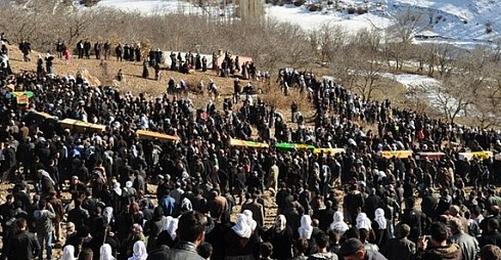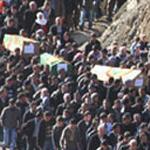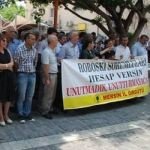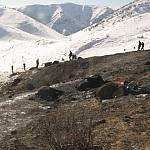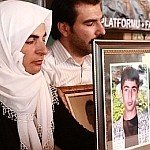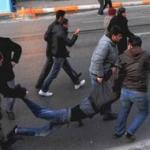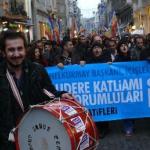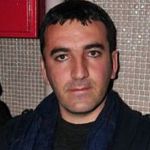The bar associations of Diyarbakır, Şırnak, Mardin, Batman, Bitlis, Hakkari, Ağrı, Bingöl, Kars, Tunceli, Van and Siirt, twelve Kurdish-majority cities in south-eastern Turkey, issued a joint report about the aerial strike in Uludere that caused the death of 35 civilians. "Strong evidence suggests that the massacre has been done intentionally. The statements of the authority raised concern that the incident is not going to be investigated properly" the report announced.
The lawyers investigated the incident that happened on 28 December in the Uludere (Qıleban) district close to the Iraqi border and killed 35 inhabitants of the villages of Gülyazı (Bujeh) and Ortasu (Roboski). The related report was published on Thursday (5 January).
The report specified that 35 people, 17 of whom were minors, died in the attack. One person was injured and two survived without being harmed. The lawyers talked to victims, eye-witnesses and to official authorities. The report also contains the statements of villagers Servet and Abbas Encü, two survivors of the incident. Their accounts can be summarized as follows:
"Trade did not develop due to conflicts"
* In general, the people in this region have family ties with the inhabitants of the villages on the other side of the border. This is a mountainous region and there is no other source of income. Cattle dealing did not develop because of the climate and due to the conflicts. Usually, cigarettes, one or two containers of diesel and food products are being brought from the other side of the border and people gain about TL 50 (€25) per load.
* Since 2000, the organization (militant Kurdistan Workers' Party/PKK) did not pass through the area the incident happened and there were no clashes. In similar operations in the region, military officials called and asked if anybody was in the region but this time they did not call. The security forces are usually aware of the crossing of the border due to trade and tolerate the situation.
Was evidence destroyed?
* There was no "stop" warning. Initially, they were kept out by the soldiers when they came to the border. First of all, a light flare was shot and then the bombing with F-16 fighters started. The bombing lasted for about one hour. When we took the bodies, we did not receive any help from the government. Later on, about 200 soldiers came and cleaned the area without leaving a trace of the incident.
* The ones who hid in the water were not injured. There was a terrible smell at the scene of incident. It has to be investigated whether chemical weapons were used.
"Who decided for the operation?"
Under the heading "Elements that need to be clarified", the report listed a number of questions:
"Why and under which order did the soldiers prevent the civilians from crossing the border? Why did the soldiers not participate in collecting the bodies? Why did the related people not go to the scene of incident despite allegations that some of the critically wounded persons died because of a lack of medical intervention? Who gave the decision for this operation in which way and why?"
"Operation led to emotional offence"
These are a few findings of the conclusion of the report:
* The response of official state authorities towards the relatives of the deceased and the local people created a perception of insecurity and "emotional offence".
* There is strong evidence suggesting that the massacre "was done intentionally". Statements of the president, the prime minister and spokespersons of the leading party fuelled concern about a proper investigation of the incident.
* First of all, the relatives of those who were killed or injured should be compensated for material and moral damages. The issues of intend, neglect and responsibility have to be investigated immediately. The responsible persons should be disposed from office, prosecuted and punished according to their actions. (AS)




